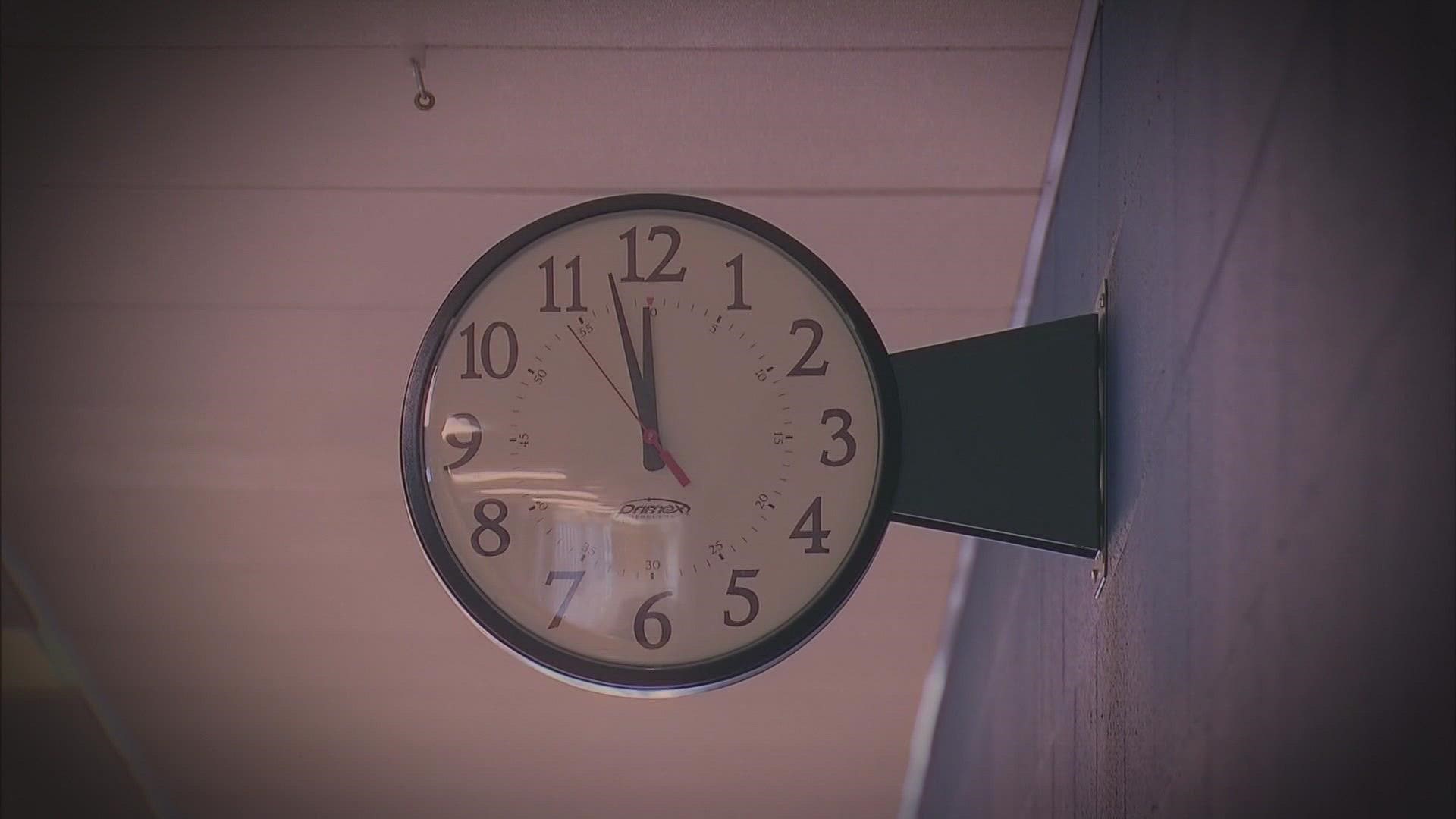SEATTLE — It's that time of year again to change the clocks, and once again, the debate over whether to get rid of the practice carries on.
Sen. Patty Murray of Washington has been pushing for Congress to approve a bipartisan bill that she is co-sponsoring, known as the Sunshine Protection Act.
"I don't know a single person who loves to go through the trouble of figuring out whether their microwave or their oven has the hour right," Murray said on the Senate floor in November.
In 2019, Gov. Jay Inslee signed legislation that would allow Washington to be on daylight saving time all year round. It requires federal approval for it to be in effect.
"Congress has to be part of this solution," Murray said.
On the other hand, research has suggested staying on daylight saving time permanently would have an adverse health effect, particularly for people who live in the northwest, where sunlight becomes limited in the winter months.
"It's a huge burden to put on somebody to try to start your morning activity when your mind and your body are still not ready," said Horacio de la Iglesia.
De la Iglesia is a professor of biology at the University of Washington and has done extensive research on sleep behaviors.
De la Iglesia acknowledges that daylight saving time allows for more light in the evening hours, especially in the summer. But around the winter solstice in Seattle, the sun will not rise until closer to 9 a.m., should we be on daylight saving time in the winter. The health impacts could include more seasonal depression due to lack of morning light in wintertime.
"People typically relay daylight saving time with this evening light at the end of the day. But they never experience what it is not to have morning light until 9 in the morning, and that's what's really going to get you in the winter," De la Iglesia said.
He said schoolchildren would feel the impacts in particular.
"Most of their days of school during the year would be in the dark. They would walk into their first period, in the dark," he said.
De la Iglesia said, should there be a desire to get rid of changing clocks twice a year, he suggested staying on standard time permanently, rather than daylight saving time, which he characterizes as an artificial time setting.
"It doesn't make any sense to be in permanent daylight saving time, also as human beings we evolve to be in tune with the solar day, not to be in an artificial time that is one hour away from the solar day," De la Iglesia said.
Federal approval is not needed to opt-out of daylight saving time and to be on constant standard time, which states like Arizona and Hawaii have opted for.
"I would get rid of it, just because it's kind of pointless. I don't really know what it serves, other than throw off our schedules," said Patrick O'Neill.
O'Neill's family enjoyed the Sounders game Saturday afternoon in a comfortable amount of daylight, as spring is just around the corner -- something Seattleites love to appreciate.
He and his daughter agree that no matter what happens, it would be more convenient to stop changing clocks altogether.
A UW professor explains why daylight saving time has negative effects on health
A UW biology professor's research says staying on daylight saving time permanently has adverse effects on sleep cycles and overall health.

